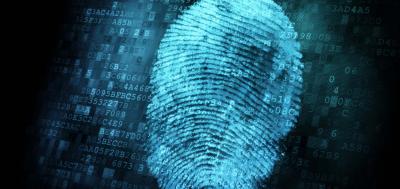Do you think a career in computer forensics might be for you? Computer forensics is an increasingly popular field with plenty of opportunity for advancement, offering high median salaries, job opportunities in a variety of sectors, and a challenging, fast-paced work environment.
If you're excited by the prospect of investigating cyber crime, but aren't sure if you're right for the job, it's important to do your research on the field, learn more about what typical computer forensics jobs look like, and to find out what skills you'll need to succeed.
Those pursuing a career in this field will need to have a specific set of digital forensics skills: technical, professional, and functional. Take a look at our top computer forensics skills list to see if you have what it takes to become a computer forensics specialist.
Top Skills Needed for Computer Forensics Jobs
1. Technical Aptitude
As the name implies, computer forensics jobs are technology-focused: you'll need to work across a variety of technologies, from computers to mobile devices and operating systems, to identify and respond to security breaches and network hacks.
2. Attention to Detail
As an investigator, you'll need to be detail-oriented in order to carefully sort through significant amounts of data to uncover and examine digital evidence. Thoroughness and a keen eye for detail are essential computer forensics skills.
3. An Understanding of Law and Criminal Investigation
Computer forensics is just as much about criminal investigation as it is about technology. You'll need to have a strong understanding of white-collar crime, criminal law, and criminal investigation - skills that can all be built through a degree in computer forensics.
4. Communication Skills
As an investigator, you'll often be called upon to explicate your findings to others within your organization, or even to a courtroom as part of a criminal case. Communication skills (along with other key soft skills) in computer forensics are essential: you'll need to be able to convey technical information clearly and concisely to individuals of different levels of technical comprehension.
5. Comprehension of Cybersecurity Fundamentals
While cybersecurity and computer forensics are two separate fields, they're closely related—and having a foundation in cybersecurity can help you excel in your computer forensics career. To be able to effectively solve digital crimes, you'll need to have a solid understanding of the tactics criminals use to breach systems, and how cybersecurity professionals work to prevent such attacks. Most computer forensics degree programs will have a cybersecurity component for this reason.
6. Analytical Skills
Having a natural aptitude for analytical thinking is a must for anyone considering a career in computer forensics. As an investigator, you'll need to analyze evidence, observe situations closely, notice patterns and discrepancies, interpret data, and ultimately, solve crimes - all of which require a high level of analytical ability.
7. A Desire to Learn
As with any technical field, computer forensics is fast-changing. Anyone who works in the field will need to be committed to keeping current with best practices and emerging industry trends, and will always need to be learning and self-educating - both on and off the clock.
8. Ability to Work with Challenging Material
Many computer forensic specialists - particularly those working in law enforcement roles - are required to conduct investigations that involve offensive or disturbing material. The ability to work with such challenging content on a regular basis is important.
9. Programming Knowledge
A strong foundation in programming is essential for computer forensic investigators, per an article by CFE Raymond Musumba. It helps professionals understand how software and scripts operate, identify suspicious code, and even recover deleted or hidden data. Languages like Python, C++, and Java are particularly useful in developing investigative techniques and custom tools for analyzing cybercrime. For those with a bachelor’s degree in information technology or a related field, programming knowledge can significantly enhance their ability to trace digital footprints and navigate complex computer systems.
10. Knowledge of Networking and Network Security
Understanding how data moves across networks, and how to secure it, is crucial in modern forensics. From tracing intrusions to detecting malware, a deep knowledge of network security helps forensic investigators follow the digital trail left by hackers. Whether working for law enforcement agencies or private cybersecurity firms, professionals with this expertise can identify vulnerabilities and protect sensitive information from future threats.
11. Reverse Engineering and Malware Analysis
According to TechTarget, cybercriminals often use sophisticated malware to cover their tracks. That’s why reverse engineering is such a vital skill in computer forensics. This process involves dissecting malicious software to understand how it works, what it targets, and how it can be neutralised. For those involved in investigating cybersecurity threats, malware analysis helps uncover attack vectors and strengthens defense strategies against future incidents.
12. Cloud Forensics
As more organizations move to cloud-based systems, cloud forensics is becoming a must-have skill. It focuses on tracking data breaches, suspicious activities, and access logs within cloud environments. This area requires a thorough understanding of how sensitive data is stored, transferred, and protected across virtual servers. Forensic investigators with cloud expertise can support information technology teams and security systems in maintaining accountability and compliance.
13. Encryption and Cryptography
Crowdstrike confirms that many modern attacks involve encrypted files or communications, so forensic professionals must understand how encryption and cryptography work. This includes recognizing different encryption algorithms, recovering encrypted data, and ensuring that decrypted information is handled properly. With sensitive information at stake, these skills help forensic experts maintain the integrity of an investigation and protect evidence in legal proceedings, often in partnership with law enforcement agencies.
14. Mobile Device Forensics
Smartphones and tablets are often central to digital investigations. Whether it’s recovering deleted messages or tracing GPS data, mobile device forensics is essential for accessing sensitive data stored on portable tech. Professionals trained in this area can uncover vital evidence during both criminal and corporate investigations, supporting the efforts of forensic investigators and legal teams alike.
15. Incident Response & Threat Hunting
Computer forensics isn’t only about solving past crimes. It’s also about preventing future ones. Incident response and threat hunting involve actively monitoring systems, detecting intrusions, and responding quickly to breaches. These proactive skills are highly sought after by law enforcement agencies and private cybersecurity teams looking to safeguard their computer systems from ongoing attacks. For those with a bachelor’s degree and hands-on experience, this area offers a rewarding intersection of defence, analysis, and real-time action.
How Do You Build Computer Forensics Skills?
Whether you're just starting out or looking to deepen your expertise, building strong computer forensics skills requires a combination of education, experience, and continuous learning. Here are five key steps to get you started:
Earn a Degree in Computer Forensics or Related Field
A solid academic foundation is the first step toward a successful career in digital investigations. Programs focused on computer forensics or information technology help students develop critical investigative techniques, learn how to secure and analyze sensitive data, and prepare for real-world scenarios.
Explore our online bachelor’s degree in Computer Forensics & Digital Investigations to start your journey. Questions? Contact Admissions to learn more.
Gain Hands-On Experience
Theory is important, but nothing beats real-world application. Practicing with forensic tools, analyzing test data, and participating in mock investigations can help you develop the critical thinking and technical skills needed to succeed in the field. Look for opportunities to get hands-on experience through labs, workshops, or cyber competitions.
Develop Strong Cybersecurity Skills and Networking Knowledge
Computer forensics and cybersecurity go hand in hand. Understanding how cybersecurity threats emerge and how network security systems are designed gives you the edge when it comes to identifying breaches and tracing digital evidence. Courses, certifications, or self-paced learning in these areas can enhance your technical foundation.
Stay Updated With Industry Trends
Cybercrime is constantly evolving, and so should your skills. Stay informed by following cybersecurity blogs, attending conferences, and pursuing ongoing training. Being up to date on tools, tactics, and regulations ensures you're prepared to investigate the latest threats targeting today’s computer systems.
Seek Internships or Entry-Level Roles
Internships or entry-level positions offer practical experience, mentorship, and insight into how law enforcement agencies, private companies, or information technology teams handle investigations. These roles are excellent stepping stones for applying your skills in real investigations and building a strong professional network.
Download Program Guide
Learn what you can expect from our online bachelor's in computer forensics and digital investigation program.

Download Program Guide
I acknowledge that, by clicking the "submit" button, I am giving my express written consent to Champlain College and its representatives to contact me about educational opportunities via email, text, or phone, at the phone number above, including my mobile phone, using an automatic dialer, or pre-recorded message. Message and data rates may apply. I understand that my consent is not a requirement for enrollment, and I may withdraw my consent at any time.






